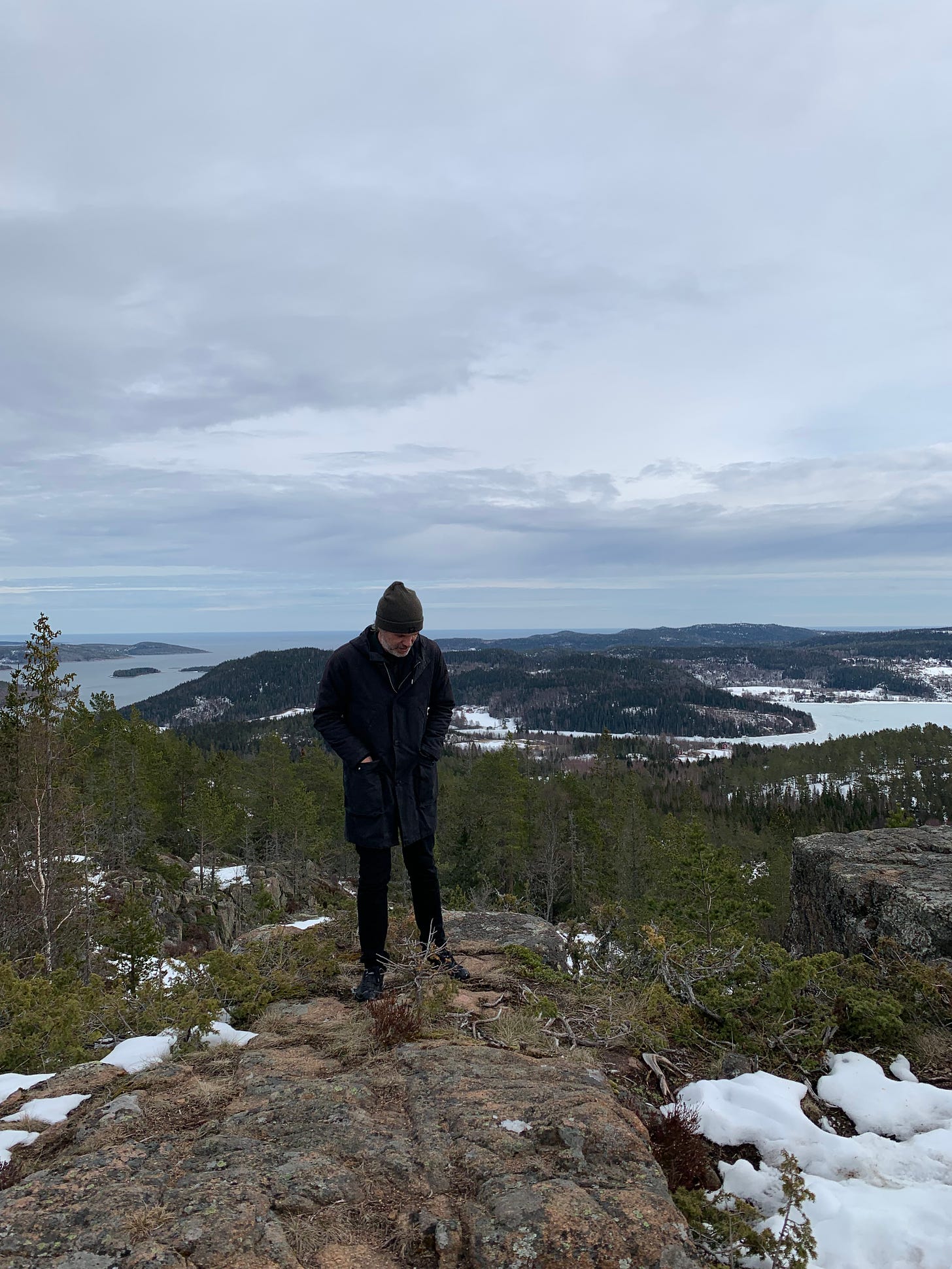Civilistjävel!
The fastest way to learn about Civilistjävel!: try this recent DJ set on NTS and then buy Järnnätter, his fantastic new album. In a world of autopilot drone buddies and Burial weed carriers, Civilistjävel! makes an honest loaf of dread. This is gorgeous, stately, re-centering stuff. I cannot imagine a single person reading this who would not have some use for Järnnätter. There are other releases, none of them easily found.
Most all of the photos here are his: “my tv antenna at different times of the year and day.”
What is your name?
Civilistjävel!
What do you do when you’re not making music?
I work with music for others mastering and mixing but also for a company in the audio industry.
What does Civilistjävel! mean?
It could be roughly translated as “Civilian Bastard!” It was inspired by the brilliant Bo Widerberg movie, Ådalen 31, which is about the 1931 shooting of strikers by the Swedish military in Lunde. In one scene, the captain yells “Civilistjävel!” at one of the strikers. It is interesting to use a name that does not correspond to the music in an obvious way. For Swedish speakers, it sounds like the name of a bad punk band.
What is the story of the “iron nights”—the “järnnätter”—and how does it relate to the album?
It’s just an interesting old expression in Swedish and it cannot be directly translated. It means something like “unusually cold summer nights with snow.” It might also say something about the music, a somewhat cold summer album.
How long have you been doing Civilistjävel!
I started using the name for the first release in 2018, but the music on the first three releases is much older than that.
How long have you been making music?
Since the early ‘90s.
Where do you live?
In Uppsala and Nordingrå, Sweden.
What kind of gear do you use?
I prefer to use very simple setups: one thing for the bass, something for melodies and chords, and then a basic drum synthesizer of some sort. I add a few effects to that and then treat this small assemblage as a single instrument, which I then push as far as possible. Usually each track comes from a unique setup like that. I mostly prefer the cheap, unloved gear. I also record most stuff live straight to a single stereo track. For many years, I have tried, and failed, to do music with modular synths. That gear forces you to fill the space with sound, like all the 16th notes have to be making a sound. I’m more of a pointillist and prefer when there is silence and space in music.
Is Civilistjävel! trying to do something specific?
I just want to make electronic music with interesting textures and a bit of emotion and soul. Nothing very clever. Also, I am not that into ambient and drone music so that is definitely not something I’m aiming for. I mostly listen to old ethnographic recordings and Scandinavian folk music. My biggest inspiration is probably UK bass music—that is where my roots are. Sheffield bleep and drum and bass and sound system culture in general is what got me most excited about music, growing up. I hope all this is at least in some way translated into the recordings, even though I prefer to slow everything down so much. I think most music would benefit from being slowed and pitched down a bit.
Is there a story about the recording of this album?
It is the first Civilistjävel! release with (almost) only new recordings, done during lockdown 2020. It usually takes me lots of time making tracks, doing many takes and versions over a long period, and I had plenty of studio time then.
Does the name Civilistjävel! have any new meanings now?
A friend recently told me they thought the name was inspired by Swedish ‘60s sound artist Åke Hodell, who I really like. He probably would have made something called Civilistjävel!
How do you know when a track is done?
One of the good things about working with old and relatively cheap gear is that you get lots of noise. I tend to use it in creative ways with compressors or limiters, so it becomes part of the rhythm instead of just background hiss. Usually a track is finished when I feel it is like a breathing organism: when I have, in some respect, lost control over it.
Is there a scene, social or virtual, that matters to you?
I’m enjoying the local electronic music scenes created around physical shops, online radio stations, and other creative spaces. I recently did a live show for Kindred in London, which is one of those places. I feel that this is where the most interesting new electronic music comes from and where the creative merging of genres and styles happens. It is definitely not happening on social media (which is to some degree just influencers selling new musical gear) or on streaming platforms. It is very hard to connect through an algorithm. For me, it feels more interesting to just send people files when they ask where to find the music. By mistake, the new album just ended up on streaming platforms. I’m a bit hesitant about removing it, because it becomes such a statement doing that.







